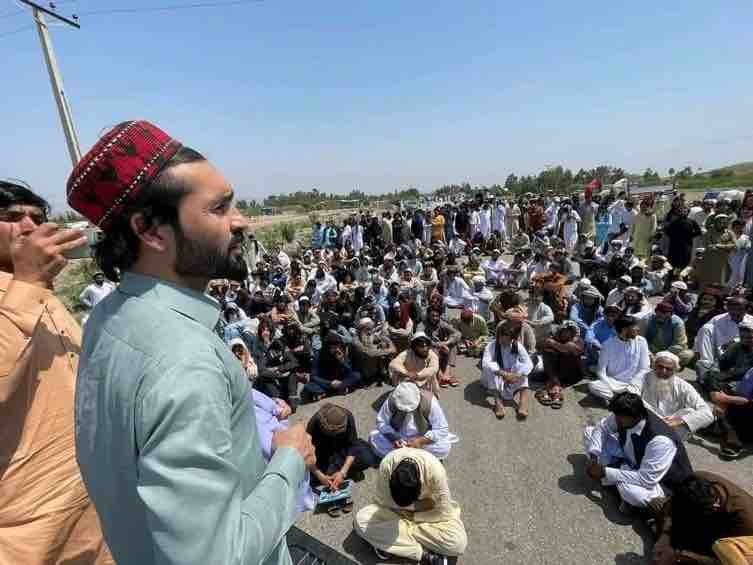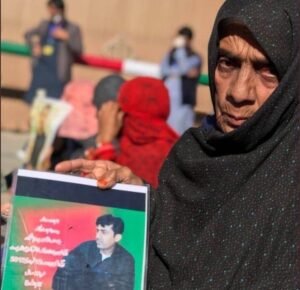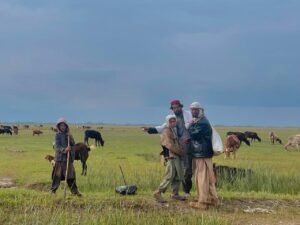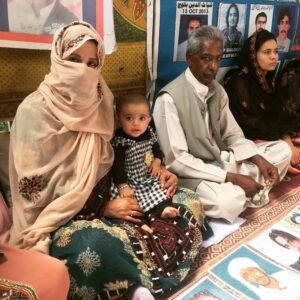Challenges and Concerns: Pakistan’s Persistent Human Rights Violations Against Minorities

Supporters of the Pashtun Tahafuz Movement (PTM) protest in Baba Kiel area of Bannu, demanding justice for the brutal killing of their younger members. Photo: PTM X
By Lucas Smith
Pakistan’s human rights record has once again been thrust into the global spotlight, with particular scrutiny on the protection of minority rights and the prevention of attacks against religious minorities, as highlighted in the latest human rights report from the US State Department, released on April 23, 2023.
The 2023 Country Reports on Human Rights Practices meticulously assess internationally recognized individual, civil, political, and worker rights, as outlined in the Universal Declaration of Human Rights and other global agreements. Despite the benchmark set by these agreements, the report starkly notes no significant improvements in Pakistan’s human rights situation over the past year.
Throughout 2023, Pakistan witnessed persistent violence against religious minorities, characterized by forced conversions, early and forced marriages, and mob assaults targeting minority groups. In a country of approximately 241 million people, Muslims constitute the overwhelming majority, accounting for 96.3% of the population. Hindus and Christians each make up 1.6%, while other religious minorities such as Sikhs, Buddhists, and Zoroastrians collectively represent less than one percent, according to the US Commission on International Religious Freedom.
Civil society and human rights organizations have been vocal about the escalating violence against minorities within Pakistan. According to the Islamabad-based Center for Research and Security Studies (CRSS), there were a staggering 193 incidents of violence against religious minorities in Pakistan last year alone. Christians bore the brunt of these attacks, with 113 recorded incidents, followed by 42 cases targeting Ahmadis, 37 against Hindus, and one against Sikhs. The CRSS also reported 35 deaths resulting from sectarian attacks in 2023, predominantly impacting minorities, compared to 19 in 2022.
The US human rights report drew attention to the failure of Pakistani courts to adequately safeguard the rights of religious minorities accused of violating the country’s stringent blasphemy laws. It noted a concerning trend where, despite the majority of those imprisoned for blasphemy being Muslim, religious minorities bore a disproportionate brunt of these accusations. Additionally, the report criticized lower courts for often disregarding basic evidentiary standards in blasphemy cases due to fears of reprisals from religious groups.
Forced religious conversions and the draconian enforcement of blasphemy laws remain pressing concerns for religious minorities, as highlighted in the report. Societal violence stemming from religious intolerance continues to pose a serious challenge, with sporadic reports of mob violence targeting religious minorities.
Prominent rights activist Zohra Yusuf, former chairperson of the Human Rights Commission of Pakistan (HRCP), echoed the report’s findings, expressing disappointment at the lack of substantive improvements in minority rights. She particularly emphasized the plight of the Ahmadi community, noting frequent attacks on their places of worship and cemeteries.
Yusuf also shed light on the issue of forced conversions affecting Hindus in Sindh province, where girls are abducted, forcibly converted to Islam, and married off to Muslim men. She criticized the judicial system’s handling of such cases, citing the challenges victims face in obtaining justice.
In a deeply troubling development, the Pakistan Medical Association (PMA) exhibited banners outside Allied Hospital in Faisalabad targeting the Ahmadiyya community, branding them as a “cancer” and questioning judicial decisions perceived as favorable to Ahmadis. This manifestation of intolerance within the medical profession elicited strong condemnation from the Ahmadiyya Muslim Community and calls for accountability from the PMA.
Human Rights Focus Pakistan (HRFP), an NGO from Pakistan has vehemently demanded greater protection for minorities and their properties, citing a surge in attacks on churches, temples, mosques, and minority-owned lands. Naveed Walter, president of HRFP, underscored the persistent issue of land grabbing targeting minority communities, particularly Christians, Hindus, and Ahmadis.
Naveed Walter, President of Human Rights Focus Pakistan (HRFP) cited numerous instances where religious minorities faced harassment, violence, and false blasphemy accusations when attempting to reclaim their properties. HRFP’s reports from 2023 documented a litany of religious persecution, including blasphemy charges, abductions, forced conversions and marriages, murders, mob violence, and discriminatory land seizures.
Recent incidents, such as the arson attack on a church in Gujar Khan, the vandalism of a Hindu temple in Kashmore, the demolition of an Ahmadiyya mosque in Shahdara, and the targeted killings of Sikhs in Peshawar, serve as stark reminders of the entrenched challenges faced by religious minorities in Pakistan.
Lucas Smith is an anthropologist based in New York City.
Note: The contents of the article are of sole responsibility of the author. The Afghan Diaspora Network will not be responsible for any inaccurate or incorrect statement in the articles.










